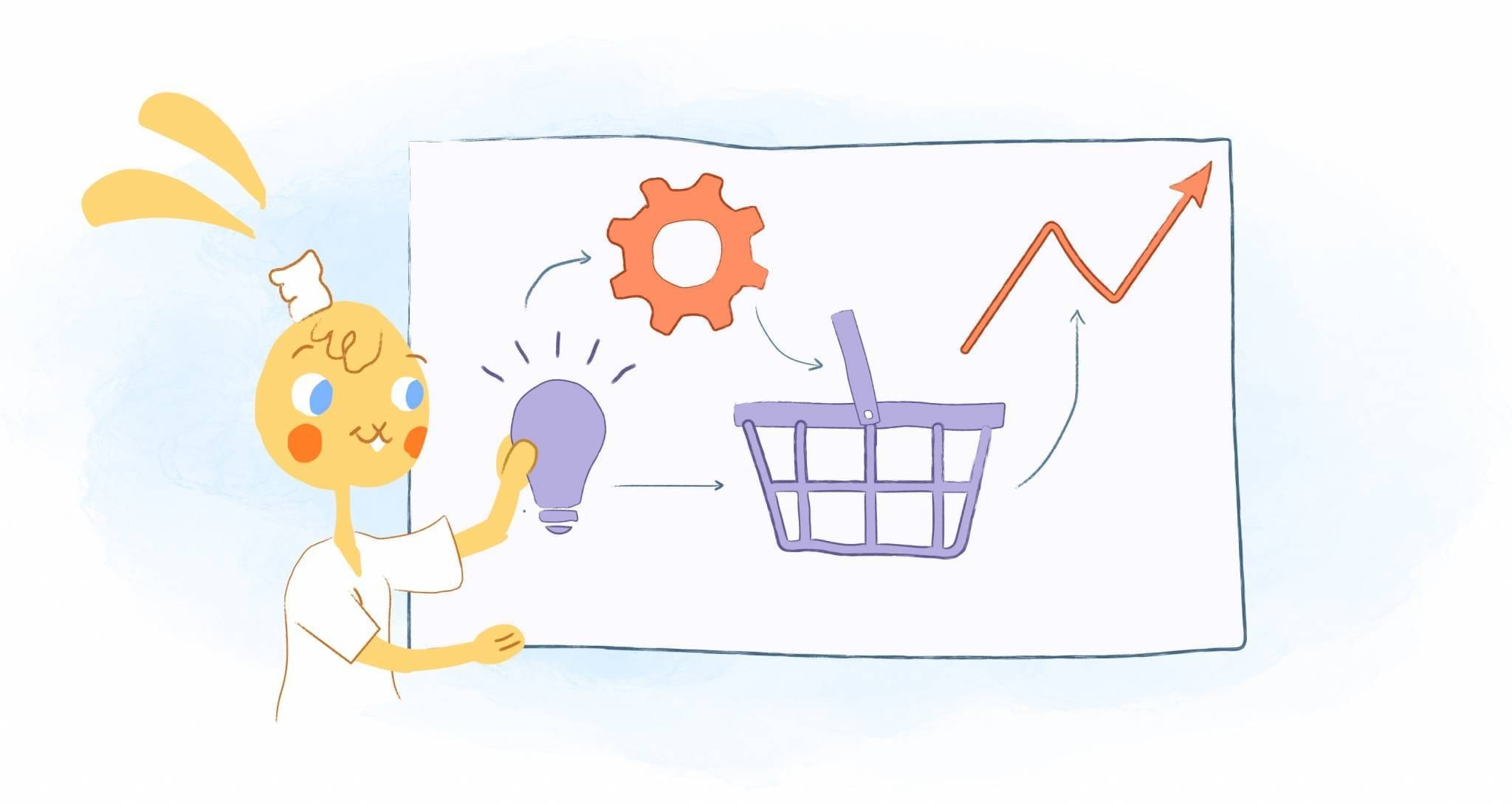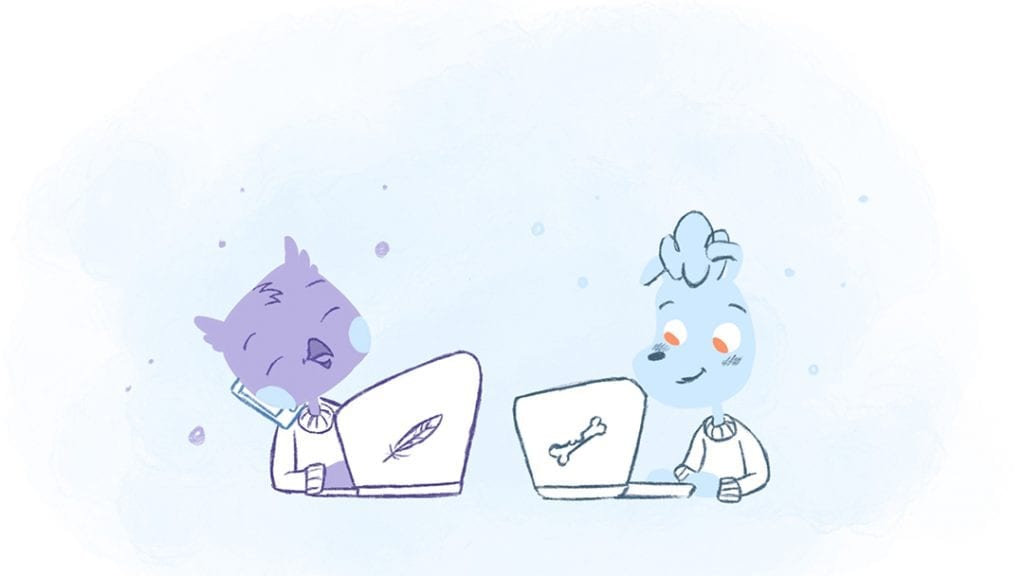

Everyone wants to be more productive. Or, at least that’s what I believe. I mean, who wouldn’t want to get more done in less time? But, what if I told you that everything you’ve read about increasing your productivity is all wrong? Here is how to think differently about productivity.
That’s not to say that there isn’t useful information out there. That may be part of the problem. There is so much information out there that it starts getting to the point where you come across the same advice again and again.
I propose that you start thinking differently about productivity. If you do, you may finally achieve that goal of increasing your productivity once and for all.
Productivity isn’t about time management.
There’s a good reason why time management and productivity are interlinked. When you manage your time effectively, you’re blocking out the right amount of time for the right tasks. As a result, you’ll produce better quality work promptly. No wonder it’s been championed by the most productive and successful people in the world.
But, time management can be counterproductive.
“Being prolific is not about time management. There are a limited number of hours in the day, and focusing on time management makes us more aware of how many of those hours we waste,” writes Adam Grant, a professor at The Wharton School of business and an organizational psychologist in the New York Times.
“A better option is attention management: Prioritize the people and projects that matter, and it won’t matter how long anything takes,” he explains. “Attention management is the art of focusing on getting things done for the right reasons, in the right places and at the right moments.”
But, wait, it gets worse.
As Calendar co-founder John Rampton noted in a piece for Entrepreneur, time management is a straight-up waste of time. That sounds harsh. But, as John explains, time management is inhumane. And, ultimately, is turning us into a stressed-out and unproductive horde of zombies. Yikes.
The solution? Don’t get too hung-up on managing your time. Instead, schedule your energy levels, which are determined by your own ultradian rhythm. For example, if you’re a night owl, then it doesn’t make sense to work on your most important tasks first thing in the morning.
You’ll accomplish more by doing less.
We live in a hustle society. Think about it. We admire people who put in 80 plus hours a week or are always in the grind. And, yeah. There’s some truth to that. I mean, if you want to accomplish anything in life, you can’t just sit and expect it to fall into your lap.
But that doesn’t mean you have to be “on” all the time. That’s not possible or sustainable. You’ll accomplish more by doing less.
For starters, we only have so much energy each day. So, it’s just not possible to work straight through an 8, 10, or 12 hour day. And, it’s all thanks to those circadian and ultradian rhythms.
As Deanna Ritchie explains in a previous Calendar article, “The human body has two productivity peaks in the day. The first mid-morning and the second later on around 5 or 6 p.m.
“Although everyone has their own specific rhythms, the point is, we’re just not meant to work for eight consecutive hours,” adds Ritchie. “Over the hours, various studies have found that when you’re circadian rhythms are disrupted, it “leads to weight gain, impulsivity, slower thinking, and other physiological and behavioral changes.”
Furthermore, when you work less, you get more sleep, are less stressed, and can live a better life. All of which can increase your productivity.
The answer? Ditch the standard 9-to-5, Monday-Friday schedule.
Instead, have a more flexible work schedule that’s been catered to your energy levels. Heck, switch to 4-day workweek for that matter.
To get started, I would track your time to see when you have the most energy and where you’re wasting time. After that, I would go through your to-do-lists and see what can be delegated or deleted. Sounds simple. But, both of these can help you spend more time on the important stuff so that you aren’t wasting time on the unnecessary.
Dripping water hollows the stone.
That’s a phrase from Ovid. And, it’s a habit that Laura Vanderkam, who is leading time management and productivity author and speaker, swears by. But what exactly does it mean?
“Small things, done consistently, add up to big things in the long run,” explains Laura. For example, back in 2018, Laura “decided to start writing 500 words of fiction every workday.” In the scheme of things, that’s honestly not much. Because of that, she didn’t “feel any resistance to cranking those words out.” She was usually able to “get those 500 words done in 15-20 minutes.”
“But all these little spurts add up,” adds Laura. By May of that year, she got to “about 50,000 words of material to work with, and I’ve figured out aspects of a novel I’m writing that never would have come to me if I hadn’t committed to doing the work.
The lesson here? Stay on top of any new thoughts or ideas that you may have. And, don’t forget to apply and try them out. You may be surprised at where that can take you.
Supertaskers are a rare breed.
A lot of people assume that they can do two things at once. In theory, it makes sense. If you get more done in less time, you’ll be more productive. And, this is the case with less important tasks, like folding laundry while dictating emails or listening to a podcast.
That’s not exactly a terrible idea. But, for more important objectives, it can slow you down. In turn, this will make you less productive.
As Kayla Sloan explains in another Calendar piece, one reason is that when you switch tasks too frequently, you’re not giving your brain time to adjust. “Furthermore, you must reacquaint yourself with where you last left off and what must be done next,” adds Kayla. “This is called the switching cost, and it increases with the complexity of your work.”
What’s more, multitasking leads to more mistakes and increases stress. It can even reduce creative thinking and memory. Some studies also claim that it can damage your brain by lessening the grey-matter density, which is responsible for cognition and emotions.
It’s OK to get bored and daydream.
Surely you have something better to do than sticking your head in the clouds. But, research begs to differ.
Over on Psychology Today, David B. Feldman, Ph.D., cites research that shows that letting our minds wander can make use wiser, spark creativity, and help solve problems. In his own work with Diane Dreher, Feldman found “that certain kinds of daydreaming can make people more productive.”
What kind of daydreaming? It should be “structured.” These are more realistic scenarios where you imagine yourself “pursuing a real-life goal, complete with experiencing the frustration of dealing with obstacles that might stand in the way.”
And, the same is valid with boredom.
Being bored can also increase creativity and productivity. It’s also beneficial for your mental health. Like with daydreaming, when you allow yourself to get tired or bored — you’re unplugging and letting your mind wander.
If you want to get bored, partake in activities like walking or swimming. Or, the next time you’re standing in line, resist the urge to scroll through your phone and just let your mind drift.
Your workplace can be a good (or bad) on your productivity.
If there is any external factor that influences your productivity, it’s the environment of your workplace. Think about it. If you don’t keep your workspace cool, then you’ll be hot and sluggish. And, if it’s freezing, you’ll be concentrating more on your chattering teeth.
If your desk is full of clutter, like paperwork and a buzzing phone, then you’ll be frequently distracted. I mean, how can get work done when you’re constantly checking your notifications, responding to emails, and obsessed with what that unopened piece of mail has to say.
Other ways to optimize your work environment? Invest in ergonomic furniture, plants, and soak up as much natural light as possible. To combat background noise, purchase a pair of noise-canceling headphones or download an app like Focus@will. It will curate a personalized playlist for you to help boost your productivity.
You’re already a productivity guru.
First off, “guru” can be a contrived term. Secondly, even if it weren’t, you are not one. Why? Because if you were, then you wouldn’t be here.
I mean no disrespect here. I want you to become the most productive person you can be. And, that’s why I had to be brutally honest.
With that said, never stop improving your productivity game. Even if you’re noticed that your output has dramatically increased, see if you can adjust so that you’re even more productive.
The best way to do this is to read and incorporate a new productivity tip a week. If that’s too much, do this once per month. Why knows? Maybe something will click in a big way for you, and your productivity will soar through the roof.











Howie Jones
My name is Howie and I'm a Customer Success Manager at Calendar. I like to ensure our customers get the best experience using our product. If you have questions email me howie at calendar.com